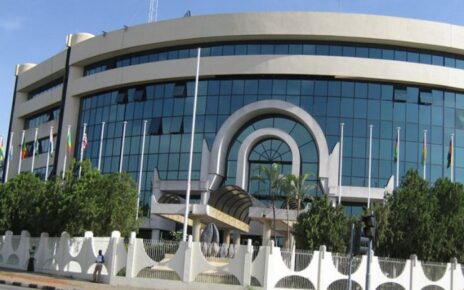Determined to cut the huge amount the country is spending daily to import refined petroleum products and bridge the supply gap in the domestic market, the Federal Government has unveiled plans to reel out a new policy that will require operating companies to refine locally at least 20 percent of the crude oil they produce in the country.
The Minister of State for Petroleum Resources, Dr Ibe Kachikwu, who was quoted as giving this hint in a statement issued by the Nigerian Content Development and Monitoring Board (NCDMB), said that the take-off of the 20 percent local refining percentage requirement would be raised to 50 percent in the next five years.
Kachikwu while making the government’s position known at the ground-breaking of a modular refinery being developed by Waltersmith Refining and Petrochemical Company in Imo State, stressed that “we have no option or we will consistently stay in the abyss of lack of processing, while we export all the raw materials.”
The project, with a capacity of 5,000 barrels of crude oil per day and projected to commence production in December 2020, is being funded with 30 percent equity by the NCDMB and an additional $35 million debt facility from the African Finance Corporation (AFC).
The minister described the government’s policy on modular refineries as an integral part of the 14-point agenda for reducing militancy in the Niger Delta region as well as create jobs in the oil producing communities.
According to him, progress has been made in the execution of 10 out of the 38 modular refineries with the first one being expected to start delivering products between December 2018 and January 2019.
Kachikwu explained that from the modular refineries which have been granted free customs duty charges and other waivers to enable the investors to bring in their equipment, Nigeria will be able to process about 200,000 barrels of crude for the local market
On efforts being made by the government to optimize the productivity of the four state-owned refineries, he restated government’s determination to get them fully turned arounf by 2019, with a target of processing about 500,000 barrels of crude oil daily.
The minister described the continued importation of refined petroleum products as wasteful to the country in terms of the foreign exchange being used for it and the loss of jobs.
In his remarks at the forum, the Executive Secretary, NCDMB, Mr Simbi Wabote, explained that the board’s decision to invest in the Waltersmith’s modular refinery was in line with the board’s vision to be a catalyst for the industrialisation of the nation’s oil and gas industry and its linkage sectors.
He said: “We stand with the desire of the Federal Government to give effect to the recent pronouncements on the establishment of modular refineries.
“Beyond our interventions in the local supply chain for in-country capacity utilisation, we have broadened our focus to include in-country resource utilization”, Wabote added.
He hinted of plans by the NCDMB to consider more modular refinery project proposals in line with its published guidelines, stressing that the capacity of such modular refineries should be in the range of 1,000bpd to 5,000bpd.
While pointing out that new modular refineries that will be supported by the board would have 70 percent of their components fabricated locally, the NCDMB boss said that Waltersmith project was permitted to fabricate some of the components in Houston Texas, United States, because this was the first time such a project would be executed in Nigeria.




